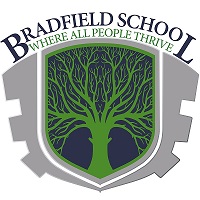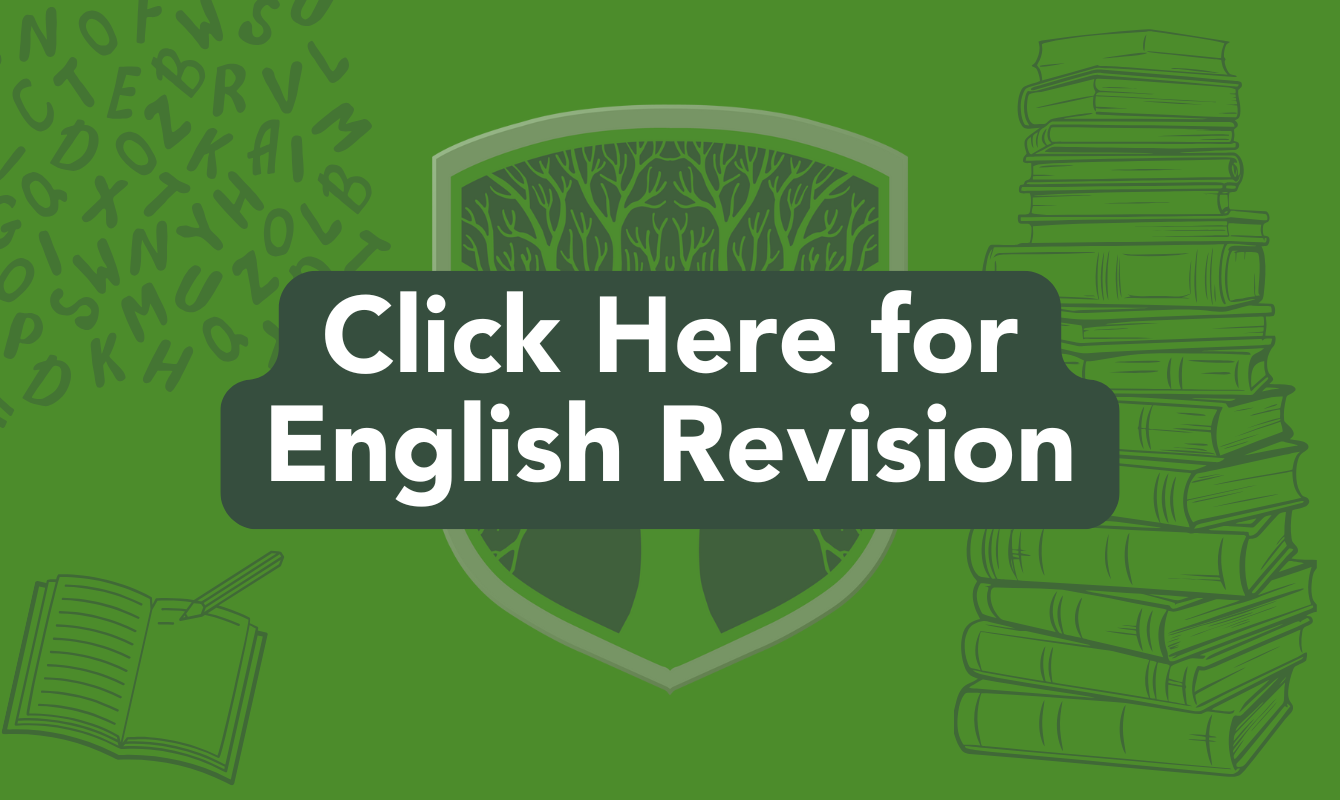English
What is our curriculum intention and purpose?
'Everyone is safe, happy and making progress in order to thrive'
'Everyone to be able to speak, read and write accurately, fluently and confidently'
The written and spoken word is not only influenced by, but also shapes, humanity. The curriculum is therefore sequenced so that students understand, question, critique and create rules, stories and patterns in literature and, more broadly, in society. Mastery of English gives all pupils the power to understand the codes that dictate the conventions of shared language, history, art and culture, as well as giving them the power to challenge, break, rebuild and create new realities from the knowledge they have learned.
At the heart of our curriculum is the unwavering belief that all young people, no matter what their starting point, can, and will, thrive within a global community. Therefore, through the curriculum, they will be taught to understand and interact with the voices of others and deploy the power of their own voice. Students will become curious, scrupulous and critical thinkers armed with an extensive, versatile vocabulary and flexible knowledge base, allowing them to communicate with accuracy, precision and flair and access and create excellent, compelling writing.
Inspire: All students are exposed to high quality texts that represent the best that has been thought and said. Texts are both mirrors and windows, reflecting back students' own lives, backgrounds and experiences, while providing windows to less familiar worlds.
Learn: All students acquire knowledge and skills in order to 'know more' and then be able to 'remember more' and ultimately 'do more' both academically and in their wider lives.
Transform: All students to become confident and independent in applying knowledge, accurately and precisely, in order to make links and connections between their own learning and the world around them.
At KS3, our mission is to enable all students to flourish in English. Students graduate from Year 9 as confident and literate readers and critical and accurate writers. By the end of Key Stage 3, they will know more about the foundational texts in literature, will be able to remember more about English Literature’s social and historical context, and will be able to do more creative and critical writing.
At Key Stage 4, our mission is to enable all students to recognise what they know and can do in order to build on the foundations by developing independence and confidence in all aspects of reading and writing. All students to be able to successfully transfer knowledge of KS3 literature, context and grammar to KS4 courses in Language and Literature. By the end of Y11, they will be able to apply knowledge to new and unseen texts, contexts and situations.
What is our learning journey?
How is our curriculum sequenced?
Our cyclical curriculum is carefully sequenced in order for students to first be introduced to literary genres, forms and contexts, including different writing forms, which they then return to each year in order to deepen and broaden their knowledge and understanding. Each year, students study a play, a novel and a modern text, either poetry or prose. In their writing, students are taught how to structure creative, transactional and analytical writing by responding to and using their text study as a style model and stimulus.
Through the study of some of the ‘best of what has been thought and said’, students explore language from critically acclaimed writers such as Shakespeare, Dickens, Priestley to Levy and Akala. Each year, students focus on a universal theme which they explore throughout the year and then use as a stepping stone to the next year. By building and developing not only their own understanding of what we are studying but also their awareness of the world around them allows our students to grow emotionally as well as academically.
What will my child experience in a typical English lesson?
At KS3, our curriculum ensures that these crucial early years instil a love of literature in all of our students, as well as providing them with a strong foundation of skills for academic writing. We do this through the teaching of Writing Mastery, Literary Heritage and Reading for Pleasure units.Accordion content
Our Literary Heritage lessons are where students study classic literature texts, such as Dickens and Shakespeare, to develop their subject knowledge, reading fluency and vocabulary. A typical lesson will place reading at the heart of learning, with regular checks for understanding and applied writing tasks that demonstrate student knowledge. This study of rigorous, challenging texts is complimented by our Reading for Pleasure lessons, where there is a focus on students developing a lifelong love of literature through engaging with texts that they enjoy. We want our students to see texts as both windows and mirrors, reflecting back students' own lives, backgrounds and experiences, while also providing windows to less familiar worlds. This knowledge of reading is then supported by our Writing Mastery lessons which explicitly teach the fundamentals of English grammar, empowering students with the skills they need to confidently express and articulate themselves.
At KS4, students will have lessons for both GCSE English Literature and GCSE English Language. These lessons will build on the core knowledge taught at KS3 and will focus on students becoming independent, academic writers and fluent, confident readers and speakers. Students will begin their English lessons with a knowledge recall activity to assess and reactivate prior knowledge that is taught throughout both two-year courses. Teachers will frequently model their thought process when writing extended answers and provide students with modelled, worked examples to deconstruct. Challenging vocabulary is taught explicitly and students are encouraged to apply this in both their spoken and written work. Students are encouraged to fully participate in class discussion through the use of cold-calling and structured talk between peers, supporting them to excel in the Spoken Language element of their GCSE.
How do we assess progress?
At Bradfield, our English teachers assess student understanding and progress in every lesson taught. This is done through a combination of retrieval quizzes, targeted questioning, whole-class knowledge checks and formative assessments. Students will also have summative assessments where they are assessed on their knowledge of a whole topic and their extended written communication. Regular verbal and whole-class feedback is given to empower students to learn from their mistakes and make progress.
How do we extend and enrich our curriculum?
In English at Bradfield, students benefit from the opportunity to explore a wide variety of texts, both fiction and non-fiction, that represent high quality and engaging writing. All texts are carefully considered to ensure that they mirror our students’ lives, as well as providing windows into periods of time and places that are outside of their current experiences, widening their horizons and building their knowledge.
Students at Bradfield benefit from a range of experiences that supplement their learning in class, for example, the opportunity to access streamed versions of National Theatre performances of key texts at KS3 and KS4, in addition to theatre trips at KS4.
Staff regularly run exciting competitions to motivate students, for example, to share their creative writing skills with others, or to boost their reading for pleasure.
Reading is at the heart of everything we do across the English department, and all staff engage with national events to raise the profile of reading for students, such as World Book Day.
Students at Bradfield are ambassadors for reading, with many volunteering to support younger readers during our form time paired reading sessions.
Bradfield English Department staff share our passion and expertise with KS4 students in afterschool revision sessions, both targeted and voluntary, which often represent opportunities for the closer study and mastery of key texts or sections of the exam.
What higher education and career opportunities can this subject lead to?
It is no exaggeration to say that the study of English is life-changing! The lasting impact of learning to harness the power of language cannot be underestimated, and there are wide-ranging opportunities for students who choose to pursue their interest in English Language and English Literature to a more advanced level.
Options for further study after KS4 include, but are not limited to, A-Level and degree level studies in Journalism, Media Studies, English Language and English Literature.
Proficiency in English underpins any role and career, however some careers that lend themselves well to the skills that students develop across the English curriculum include:
- Publishing
- Writing
- Editing
- Teaching
- Law
- Human Resources
How can I support my child in English?
You can support your child in their study of English in a number of ways, including:
- Children learn through what they see and hear so modelling reading in front of your children, reading aloud to them and listening to them read to you will help them to become more confident and expressive readers
- Regularly checking in with them about any homework given and check Satchel One/GCSE Pod at KS4 to help them time manage
- See the school calendar and communication from school about assessment points and are aware of revision expectations and opportunities for your child · Encouraging them to speak to their teacher if they are unsure about anything taught in the lesson
- Providing them with a weekly diet of additional fiction and non-fiction texts to expose them to a variety of text types to motivate, inspire and challenge them
- Expose them to a range of contexts and ways to experience texts such as taking your child to visit the theatre, live performances, libraries and public speaking events
- To support your child organise their work, different coloured pens and highlighters are a beneficial additional to their stationery
- For KS4 revision, encourage your child to complete independent revision by:
- Watching Mr Bruff revision videos on YouTube
- Listening to GCSE podcasts
- Watching GCSE Pod videos and completing the quizzes
- Using the BBC Bitesize website
- Reading AQA English revision materials
- If you are looking to purchase revision guides for your child at KS4, we study AQA English Language and English Literature. In GCSE Literature, we study:
- Macbeth
- A Christmas Carol
- An Inspector Calls
- Power & Conflict Poetry
Key Stage 3
| Year 7 | Year 8 | Year 9 |
|
|
|
Key Stage 4
Students work towards the AQA GCSE in both English Language and English Literature.
| Year 10 | Year 11 | ||
| Language | Literature | Language | Literature |
|
Elements of paper 1 and 2 reading and writing |
|
Paper 1 and 2 reading and writing |
|

